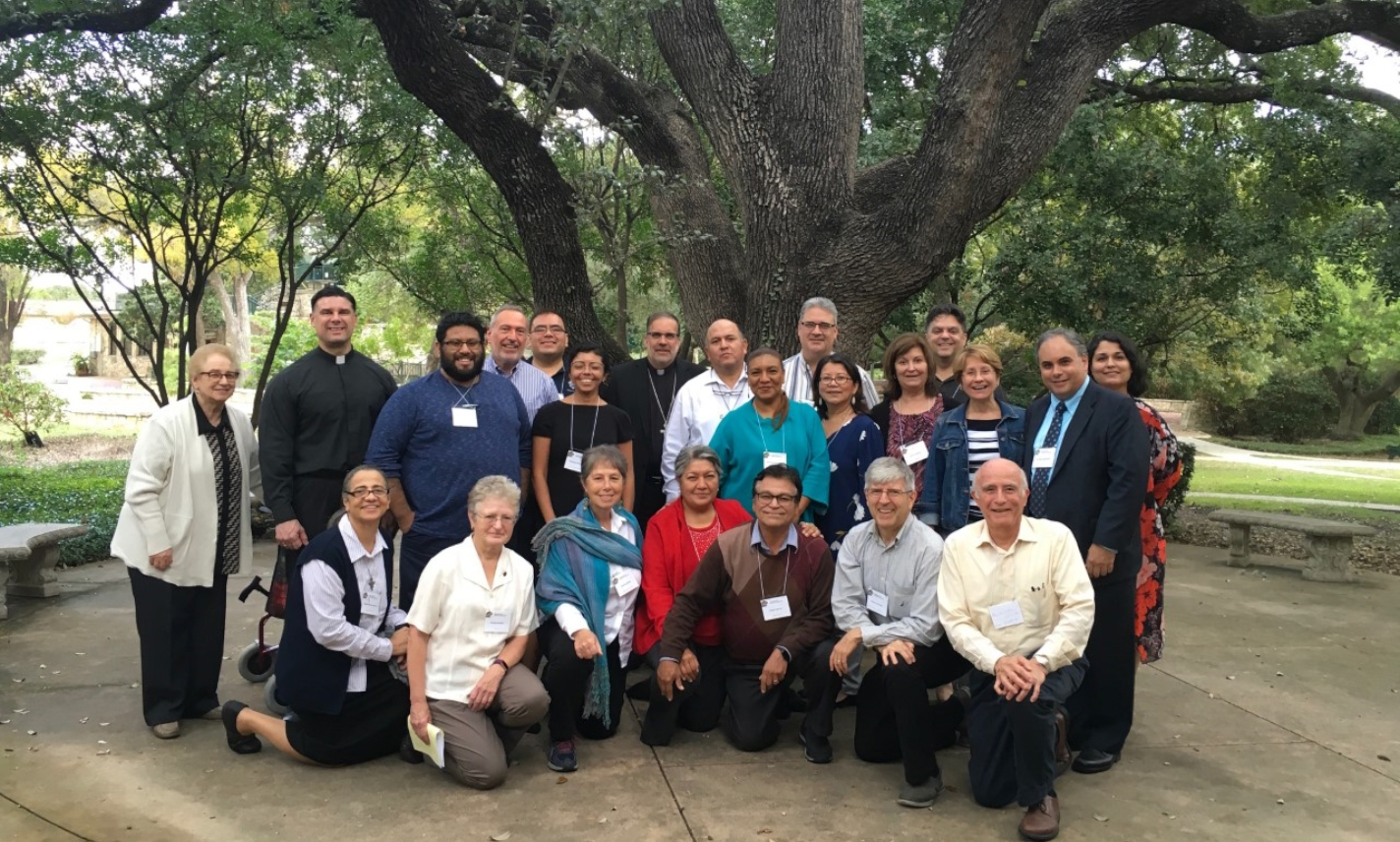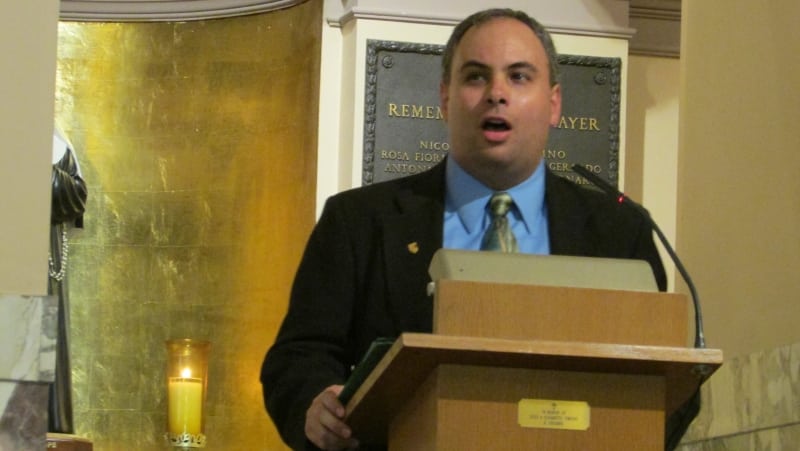One of the opportunities I have as Assistant Director of Certification for Ecclesial Ministry and Service at the United States Conference of Catholic Bishops (USCCB), is to record video reflections on the readings of the Scriptures proclaimed at daily Mass. I do so as part of larger group of colleagues at the Conference, along with lay and ordained leaders from around the country. I am grateful for the opportunity to reflect on the meaning of the readings for the life of faith today and to share them here, along with the written text of the reflections. To view these video reflections for past and upcoming celebrations of the Eucharist, visit the USCCB website.
The readings for today’s liturgy focus on leadership following the example of Jesus. The first reading from the conclusion to the letter to the Hebrews reminds Christians to follow their leaders because they keep watch over us. The verb episkope in Greek is used here – translated into English as “overseeing” or “keeping watch over” the needs of the community. It is from this term that we get the word “episcopal,” which Catholics and other Christian traditions use when referring to the ministry of our bishops.
However, the author reminds us that those who exercise the ministry of episkope in the church are accountable to the one true leader and shepherd, who is Christ. Anyone who would exercise leadership in the church – whether a volunteer, a lay ecclesial minister, an ordained deacon, priest, bishop or pope – must be held to the model and example laid out by Jesus, the Good Shepherd.
We see that example expressed in the Gospel today. Even though Jesus and his disciples, try to get away to find a bit of peace and quiet for reflection and rejuvenation, the crowd finds out about it and beats them to their destination! Think of the hopes, needs, and desires of those people who seem so hungry for the teaching and comfort of Jesus!
Jesus himself feels compassion for them in their need and, stepping aside from his plans for rest – tends to their needs. And there is a deep desire and prayer in the church that those in leadership of any kind follow this loving, compassionate example of Jesus – as all of us should.
Now, unlike Jesus, who was perfect, neither we, nor our leaders, will always get everything right. But when mistakes are made, it is the responsibility of leaders, especially those in the church, to be accountable for them, to make amends and to commit to actions that will restore trust.
We are all deeply aware of ways in which leaders in our society who say they are Christian have not always lived up to the demands of following the example of Jesus. And we painfully know that some leaders in the church have acted out of self-interest and self-protection rather than in the best interest of the People of God – both today, and frequently in our history. Our task as church in these cases is not to avoid the hard questions and difficulties which have emerged from these failures of societal or ecclesial leadership, but to ensure accountability for past failures and action and ensure future leadership is better in its oversight.
Doing this requires a recommitment of all of us to the practice of leadership laid out by the Good Shepherd, and to ensuring our churches and our communities have good practices in place to prioritize compassion and justice, while rooting out ideologies and approaches which focus on self-interest and self-protection.
Let us pray for the strength to do this – as persons, as a society, and as a church. When we follow the example of the Good Shepherd we will be able, as the psalmist says, to walk through difficult valleys, even in the midst of evil, without fear, for God is with us to give us strength to love and courage to lead, following the example of Jesus.
God give you peace!


 Request Dr. DelMonico's professional services for a liturgical, ministerial or leadership consultation, or for an academic or public presentation.
Request Dr. DelMonico's professional services for a liturgical, ministerial or leadership consultation, or for an academic or public presentation.